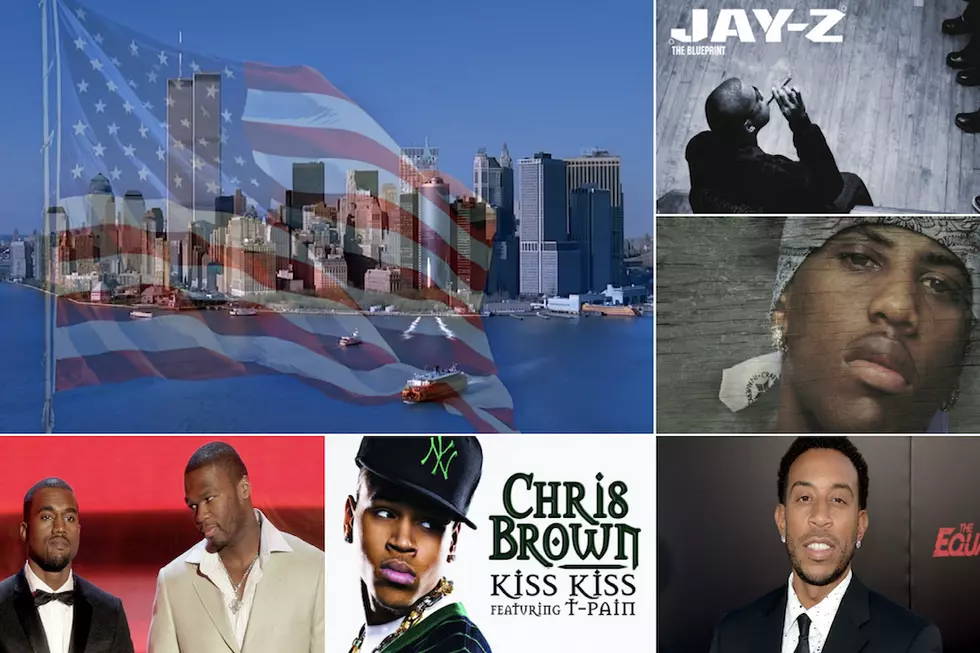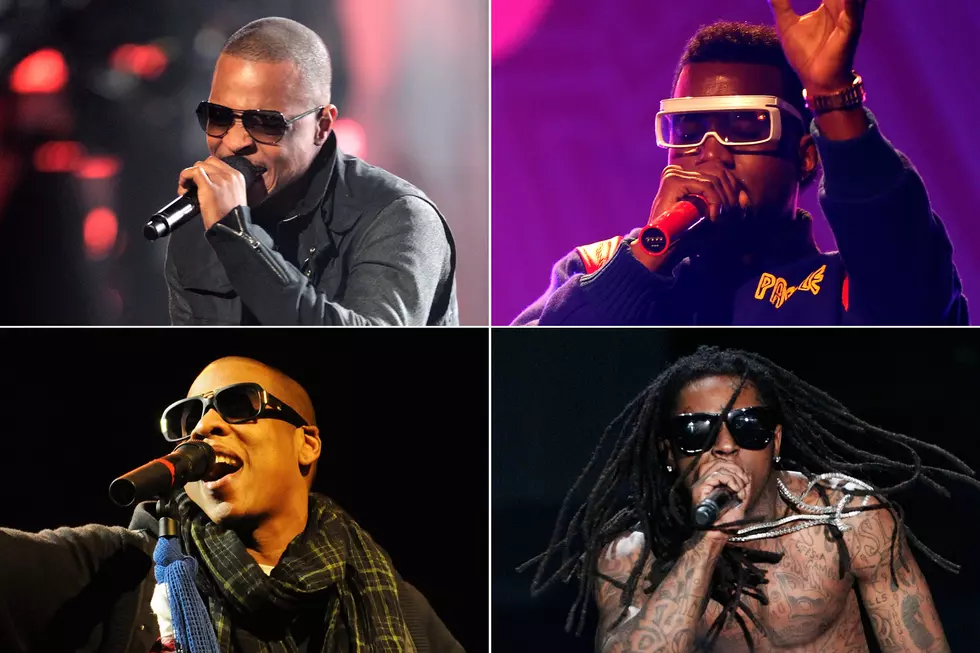
Rappers and Gun Violence: Exploring Hip-Hop’s Love of Firearms
Gangsta rap and gun violence have a complicated relationship of causality, and all too often the symbiotic connection between the two gets mistaken for parasitism by parties who see the music imposing a criminal mindset on impressionable youth. The war on drugs and the resultant gun violence in the inner city kicked up the sparks that ignited gangsta rap, and the first wave of superstars of the genre were very vocal about their role as documentarians.
"NWA are reporting what's going on in our town," Ice Cube told UK music magazine Melody Maker in 1989. Indeed, but early reaction to gangsta rap's predilection for violence, profanity and misogyny was swift and severe. Community activists as well as famous actors and politicians waged a war against hip-hop that resulted in a battery of boycotts and obscenity trials.
Two decades after violence in rap music became a point of contention in a presidential election, much of the external heat on the hip-hop community has died down. But the violent pulse of some of the music hasn't, so it might be time to explore the role and accountability of hip-hop in the current national debate about gun control.
Technology plays a critical role in hip-hop's current state of affairs. When MTV gave up playing music videos for the low production costs and huge returns of reality television, street DVDs and streaming video services like Youtube stepped into the vacuum. At once freed from the wandering eyes of parents flipping through channels and the standards of decency the FCC placed on cable television, artists and their videographers pushed the envelope. The unfettered access to music afforded by the advent of digital media and file-sharing quickly sent age restrictions on purchasing music with adult themes into obsolescence. The blogging revolution saw the rise of rap blogs that aggregate each day's harvest of new music like one-stop shops. Rappers were suddenly able to distribute new media directly to fans without labels, networks and parents censoring it.
This climate proved fertile ground for unapologetic drug rap that reveled in bleak imagery and often lacked the underpinning of outrage that lead hip-hop historians to classify early gangsta rap as protest music. Rick Ross, T.I., 2 Chainz and Young Jeezy rode the wave to stardom. Artists like Gucci Mane and Waka Flocka Flame are well-received on the mixtape circuit and frequently sought out for features. Violent Southern rap has flooded the marketplace with hits fraught with sex, guns and drugs but short on morality. Heavy on "She Swallowed It" with very little room for "Express Yourself." And these rappers can be just as calamitous off wax. T.I. has an extensive rap sheet and spent a year in jail after being arrested on federal gun charges. Similarly, Lil Wayne spent a year in jail for possession of a gun as well. The list of rappers who've been jailed for gun-related felonies is extensive. And who can forget rappers like 50 Cent, Cam'ron and Fabolous, among others, who've had guns turned on them and become victims themselves.
As patrons of an art form that co-opts the language of the streets to commute its stories, hip-hop fans are hard-wired, to a certain extent, to compartmentalize our enjoyment of the music and our reservations about the behavior it depicts. We like Biggie, but we're leery of kidnapping and robbery. We love Jay-Z but hate dealing crack. The hip-hop community frequently struggles with how to reconcile rappers' talent with their subject matter. Too much of the dialogue about dealing with violent rap music scans as censorship. The alternative, absorbing the music without unpacking its thorny extra-musical implications, is just as murky of a proposition. Ideological skirmishes between these two schools of thought have mostly missed the central issue, which is that rap is out of control, and no one wants to take responsibility for it.
Rappers claim, as they always have, that they're just rhyming about what they see. Controversial streaming sites claim they're providing a valuable service to the public. Blogs say they're just documenting the culture. Fans are enjoying music as consenting adults. So when Atlanta rapper Trouble releases a video for "Bussin'," a (great) song about how many people he can get to shoot you if he wants -- complete with shots of suspiciously young men brandishing military grade weaponry -- and 13 year old Chicago rapper Lil' Mouse releases a song warning enemies not to "fuck around and get smoked," the hip-hop community immediately launches into the blame game. And while we bicker, these videos rack up views in the millions, and the national fount of violent media continues to touch and change people ill-prepared to process it.
This isn't to say that violent rap is a catalyst for violent behavior. Too many well-adjusted citizens grew up on the stuff for that to be a concrete assertion. This isn't a request for trap rappers to couch violent and materialistic raps in remorseful introspection like T.I. has. They can rap about whatever they want (although they should be challenged from time to time like rap writer Davey D did when he pressed NWA about their choice to catalog L.A. gang violence rather than speak out against it.) It is a call for more nuanced discussions about rap's obsession with guns and what it means for the communities the music comes from and plays to. Rap music is borne out of the struggles and triumphs of its creators, and dark and violent music signifies dark and violent times. We waste so much time mulling over how to react to violent rap when we should be combating the circumstances that create it. The game doesn't change if the streets stay the same.
Watch "Rap Battle Leads to Violence in Chicago" Video
More From TheBoombox









